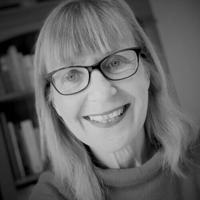Singing for Health Network Series Workshop 5: Singing for Parkinson's
Thursday 10th December 2020, 5:00 PM - 7:00 PM (London Time)
All sessions are recorded and will be sent out to all registered participants.
Voice Workshops
Health and wellbeing: Singing for Parkinson’s
Aims
- The student will gain a holistic understanding of the symptoms of Parkinson’s.
- The student will understand the neural, cognitive, and motor learning challenges present within sessions.
- Teachers and facilitators will experience how to use their existing knowledge of vocal pedagogy and body mapping to create an enhanced singing programme specifically targeting the needs of their clients.
Objectives
- Can recognise and react appropriately to Parkinson’s symptoms within a singing session.
- Can deigns targeted exercises to enhance the therapeutic benefits of sing for Parkinson’s classes.
- Can begin to develop a toolkit of strategies that can support motor learning.
- Can develop safe working practices for themselves and their clients.
Session
What is Parkinson’s?
- An overview of symptoms and the possible profile of our clients
- Established therapies
- The benefits for people with Parkinson’s of being part of a sing for Parkinson’s programme
What the research suggests
- The neurological and cognitive implications of Parkinson’s for the singers.
- Skill acquisition and motor learning in a choral Parkinson’s class.
Putting theory into practice.
- Integrating research and a knowledge of singing pedagogy to enhance the therapeutic outcomes for a Parkinson’s vocal session
Break out groups 1
Develop aims and objectives for:
- One targeted physical warm-up
- One vocal exercise
- Suggest a song that demonstrates how you will develop these exercises.
- Reflection in action: consider how you may need to adapt to the clients learning needs.
Setting up a Sing for Parkinson’s Group.
Break out group 2
Things to consider
- A question of diversity.
- What are the barriers to attendance?
- Thinking about a community approach.
- What are my biases and assumptions as I teach the class?
Health and safety round-up
References and Bibliography
Elizabeth Drwal Stuttard
Elizabeth is a Vocal Coach and Choral Facilitator, Community Dance Facilitator and Researcher...
Sorry, this is an archived short course...
We have plenty of upcoming short courses coming soon. See details of some of them below or look at the full list of short courses.


Tuesday 17th February 2026
10:00 AM - 12:00 PM
(London Time)
Simultaneous Singing and Dancing in Musical Theatre: A Cross-Disciplinary Evidence Review

Debbie Winter

Dr Claire Thomas
This short course invites participants to critically examine the latest cross-disciplinary evidence on the physical and vocal demands of musical theatre performance. Drawing on a comprehensive literature review conducted by Debbie Winter and Claire Thomas (Voice Study Centre, University of Essex), the course explores research from voice science, dance medicine, sports science, and performance pedagogy.


Thursday 19th February 2026
8:30 AM - 10:30 AM
(London Time)
It’s not a virus! Reconceptualizing and De-pathologizing Music Performance Anxiety

Rebecca Herman
Performance Anxiety is one of the most widespread and debilitating challenges facing musicians across all ages, nationalities and musical genres. Despite decades of research and the development of numerous interventions, we do not yet have an established way of supporting performers experiencing performance anxiety. Aimed at performers, teachers, researchers and students, this presentation will first summarise the current state of play in performance anxiety research, before exploring alternative ways to think about performance anxiety, drawing on new research outside of performance psychology...

Thursday 19th February 2026
1:00 PM - 2:30 PM
Thursday 26th February 2026
1:00 PM - 2:30 PM
(London Time)
Performing Pain: Vocal Health in Emotional Roles!

Louisa Morgan
How connected are acted emotions to our real-life emotions? Are they expressed differently? Do they feel different in the body? This 2-part course with Louisa Morgan looks at the potential impact of acted emotion on vocal health, why we should consider it as voice practitioners, and how to care for our performers needing to work with it.
